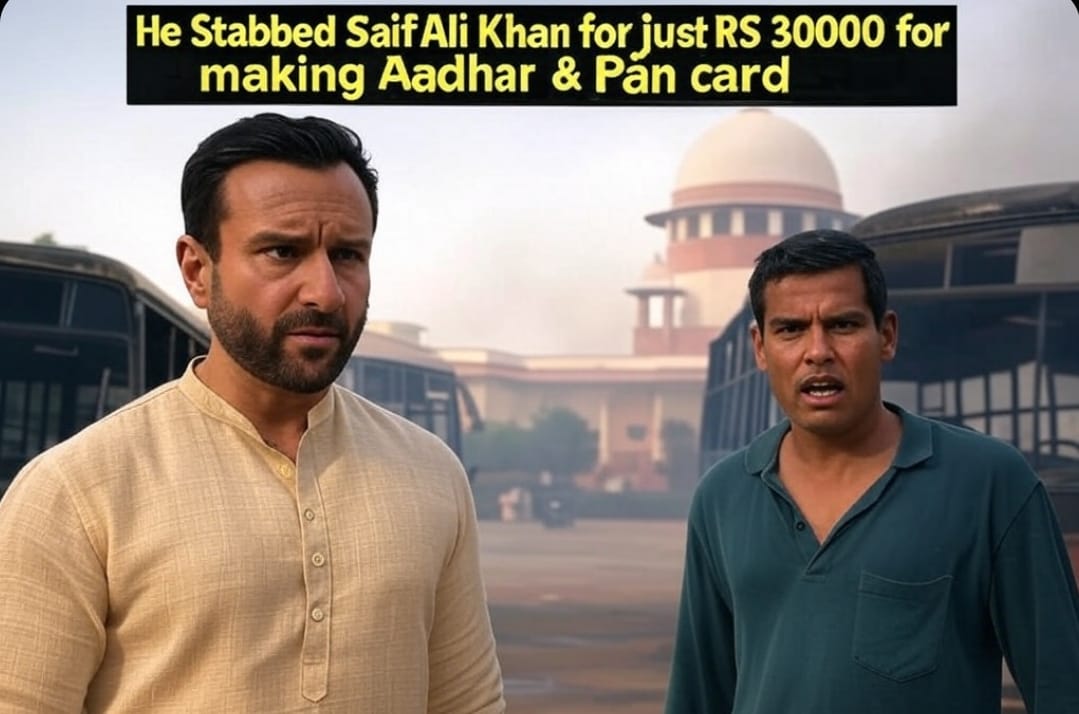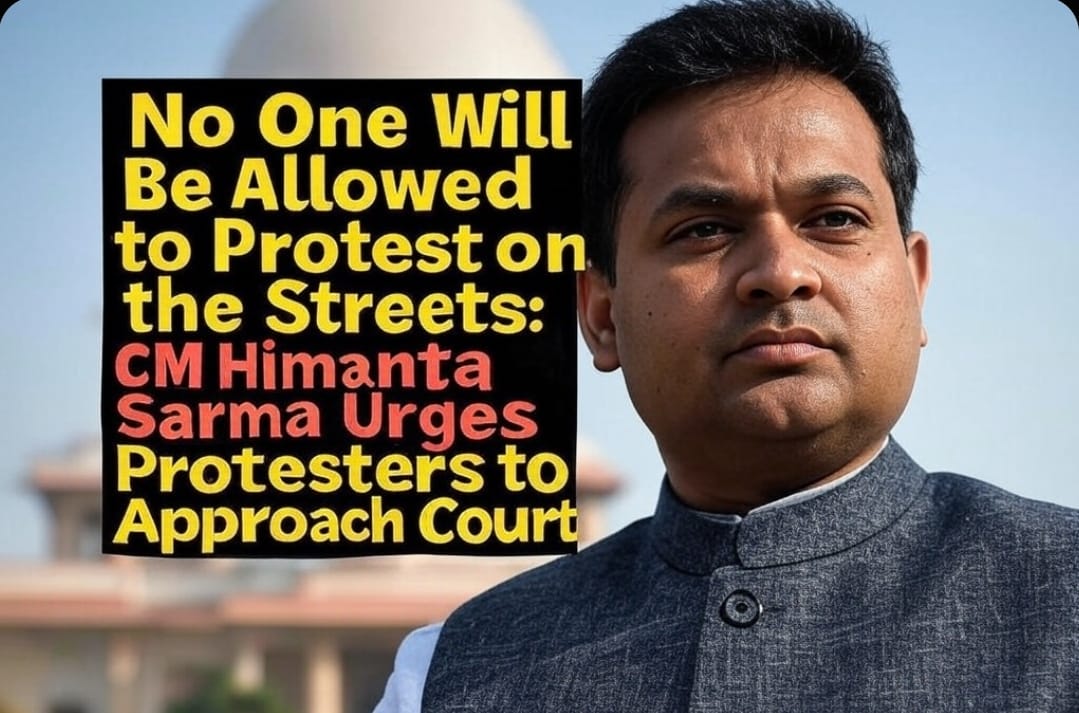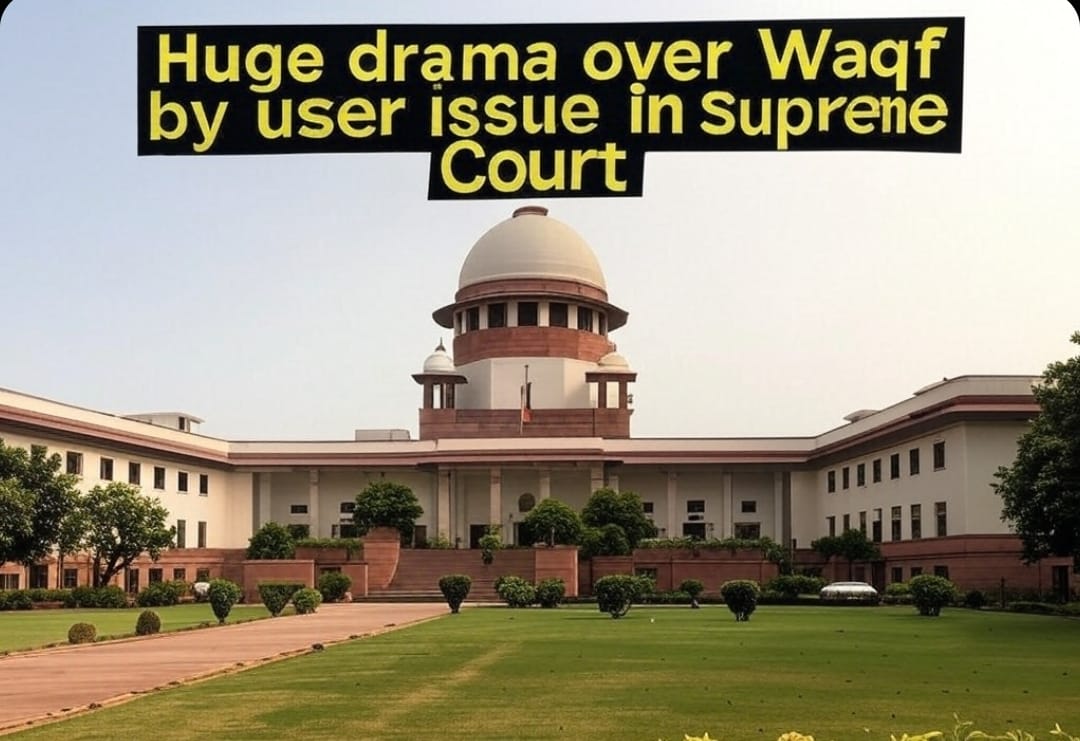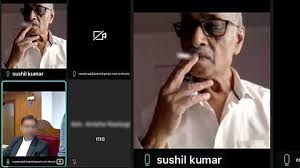In a shocking case that intertwines celebrity vulnerability, border security, and the underground racket of fake documents, a Bangladeshi national accused of stabbing actor Saif Ali Khan told police he did it “just to get out of this life” — seeking ₹30,000 to obtain fake Indian identity cards that would let him apply for a passport.
The Mumbai Police, in their recent chargesheet filed before the Bandra Magistrate Court, revealed that 32-year-old Mohammad Shariful Islam Shehzad had entered Khan’s Bandra home on January 16 intending to commit a theft. The motive? To pay an agent who promised him fake Aadhaar and PAN cards — the first step toward becoming, in his words, “anyone but who I am now.”
A Frantic Escape from Reality
Shehzad, hailing from the Jhalokathi district in southern Bangladesh, reportedly crossed into India illegally through the porous eastern border, staying first in Kolkata for two weeks before heading to Mumbai aboard the Gitanjali Express. He later found work in a local eatery near Kurla but said he felt “invisible and replaceable.”
In his police statement, Shehzad said, “I was sick. I had no name here. People just call you ‘Bangladeshi’ — like that’s your only identity. I wanted a chance to be someone new, someone who could leave.”
A senior officer associated with the investigation told this reporter, on condition of anonymity, “He wasn’t part of any big syndicate. He seemed desperate, not hardened. But that doesn’t excuse what he did. The attack was brutal. Saif was lucky he survived without long-term injuries.”
The Night of the Attack
The chargesheet outlines how Shehzad carefully planned the intrusion. He scaled the building next to Khan’s residence, crept through a ventilation duct, and emerged in the actor’s private quarters around midnight. A nanny and caregiver were in the room; Saif’s son, Jeh, was asleep.
Startled by a question from the nanny, Shehzad allegedly demanded ₹1 crore. Moments later, Saif Ali Khan entered the room and tried to restrain him.
“He stabbed him on the arms and back — the actor resisted fiercely,” a witness statement in the chargesheet reveals. “He managed to lock Shehzad in a room for a few seconds, but the man escaped through a pipe on the side of the building.”
Khan was rushed to Lilavati Hospital, where he received multiple stitches and was discharged five days later. He has since recovered but has refrained from public appearances.
In a brief comment to the media, Khan said, “I just hope the man gets the help he needs. But no one should go through what my family did that night.”
“He Thought a Fake Passport Could Buy a New Life”
According to the chargesheet, Shehzad claimed he had been in contact with a man in Mira Road who promised him Indian documents in exchange for ₹30,000.
“I didn’t come to kill anyone. I only wanted to earn something, get my Aadhaar and PAN made, and then apply for a passport,” Shehzad told investigators. “I heard people with Indian passports can go anywhere. I just wanted that chance.”
His defense lawyer, Advocate Azeem Shaikh, has filed a bail plea, claiming that his client’s mental state and socio-economic desperation should be considered. “This is not a man with a terrorist agenda. This is someone failed by both countries — his and ours,” Shaikh argued in court.
But public prosecutor Meena Deshpande countered sharply: “Desperation does not justify violence. The accused put a child and an entire household at risk. He violated our borders, our laws, and our sense of security.”
The court has reserved its verdict on the bail plea.
Larger Questions Loom
This case has stirred deeper conversations about immigration, identity fraud, and the safety of public figures in India. The ability of undocumented immigrants to blend into urban anonymity, combined with the ease of procuring fake documents, raises serious concerns.
Speaking on the broader implications, cyberlaw and security analyst Rakesh Mahadkar said, “There’s a thriving underground ecosystem that provides fake Aadhaar, PAN, and even voter IDs. As long as there’s desperation, there will be demand. But what happens when this desperation walks into someone’s bedroom?”
About Author

Tanishq, a law student at the Department of Legal Studies and Research, Barkatullah Vishwavidyalaya, Bhopal, is a budding legal writer with a sharp eye for evolving legal landscapes. Passionate about Intellectual Property Rights, Constitutional Law, and Women and Child Safety Laws, Tanishq actively explores contemporary legal nuances through writing and research.













